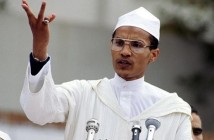Like the EU and French government counterparts, the United States is also commending the constitutional changes proposed by Moroccan King Mohammed VI last week, albeit in a more tempered manner.
“We believe that all people have the right to free assembly and to express themselves, but we’re encouraged by the proposals that were put forth by the King on June 17th to transform Morocco’s democratic development through constitutional, judicial, and political reforms, and we’re watching closely,” said U.S. State Department spokesperson Victoria Nuland yesterday.
In addition, Brookings Institute scholar Kenneth Pollack believes that the proposed changes by the North African monarch aren’t getting the respect and attention deserved.
“In some ways, this is not surprising,” writes Pollack in his Brookings Up Front Blog. “The young Moroccan King has always seemed to understand the need for reform and has pursued it, albeit haltingly, even before the Arab spring and the public demonstrations in Morocco began. Indeed, the limited reforms the King had already introduced were almost certainly a key reason that popular unrest in Morocco never reached anything like that seen in Egypt, Libya, Tunisia, Bahrain, Syria or elsewhere.”
Pollack also argues that “real, meaningful, deliberate, but gradual and controlled change” is preferable to revolution and better for Arabs seeking reform. “We have not yet seen a model of real reform in the Muslim Middle East, one that was determined and far-reaching,” writes Pollack. “The King of Morocco is now designing just such a model. There is still a long road to be tread in Morocco and we will all have to wait to see if the King holds to the bold vision he has laid out. But if he does, it will produce a very different kind of Arab state, one that may just be comfortable for its ruling elite AND address the legitimate demands of its people. If so, it will be the model of what meaningful, gradual, peaceful change in the Arab world could and should look like. And if that is the case, it will transform not just Morocco, but the entire region exactly as we and the people of the region hope.”






